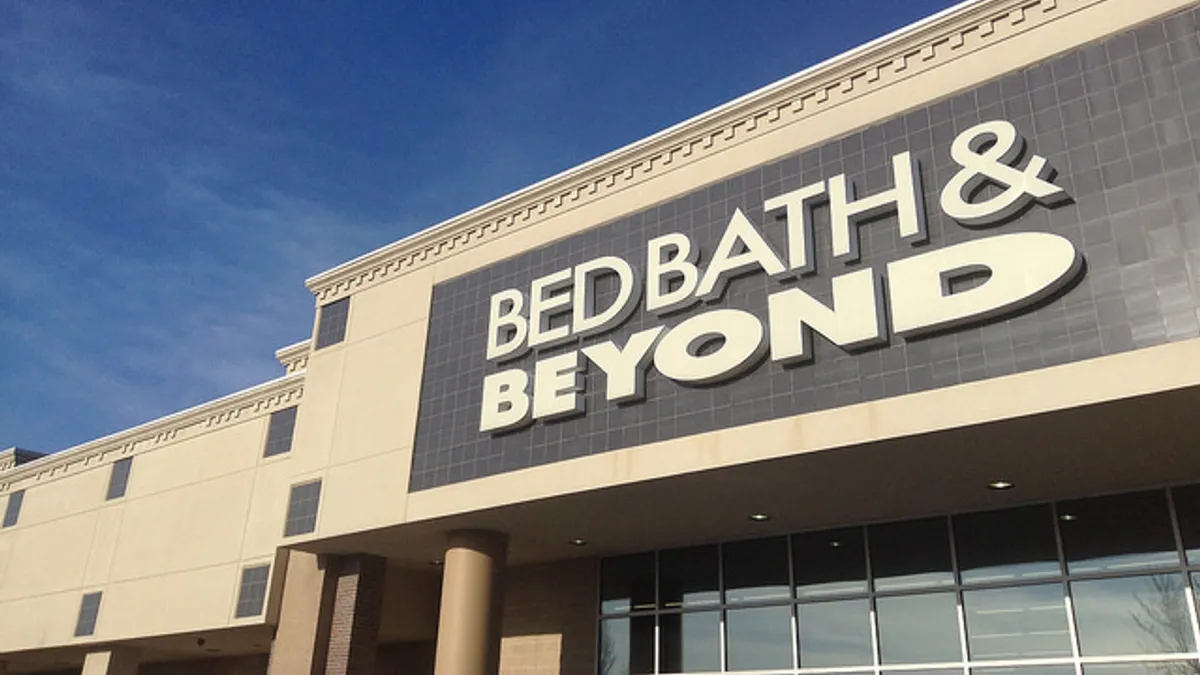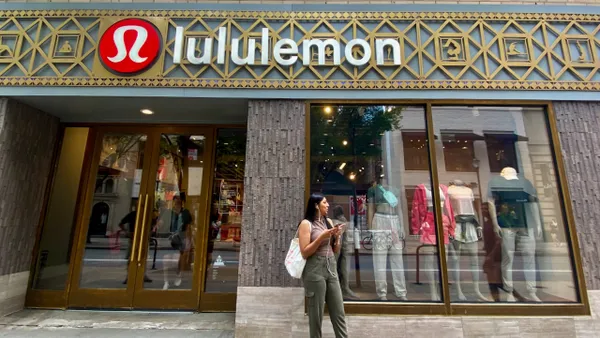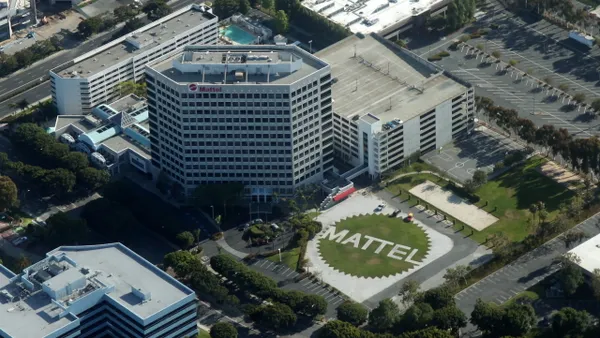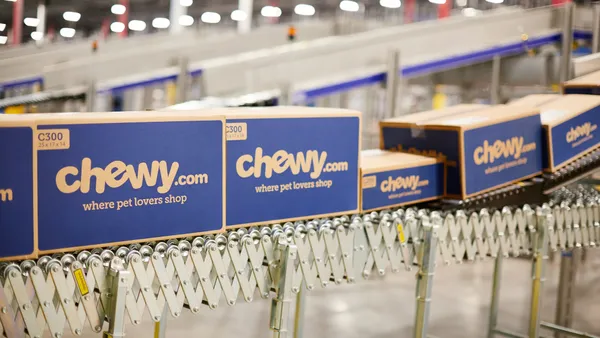Dive Brief:
-
Bed Bath & Beyond, which also runs Cost Plus World Markets and One Kings Lane, among other brands, reported this week that quarter two net sales fell 1.7% from the year-ago quarter to $2.94 billion, missing the Zacks consensus estimate for $3 billion. The retailer was hit by slow same-store sales and offset somewhat by a 0.9% rise in sales from e-commerce and new stores, according to a company press release.
-
Same-store sales in the quarter fell 2.6%, due to lower transactions in stores; that was offset somewhat by greater average transaction amount, according to the company. While same-store sales from customer-facing digital channels rose more than 20% for the 13th straight quarter, same-store sales at physical storefronts fell at a mid-single digit rate, the company said.
-
Some 200 stores were impacted by Hurricanes Harvey and Irma, though shuttered stores opened within a week in both areas; The estimated costs associated with the impact of Hurricane Harvey was approximately 2 cents per diluted share, the company said. The company also runs three stores in Puerto Rico that were closed as of the press release on Tuesday, and eight stores in Mexico were impacted by the earthquake there, executives said in a conference call with analysts, according to a transcript from Seeking Alpha.
Dive Insight:
All in all, Bed Bath & Beyond posted another quarter of struggles. Its Cost Plus World Market stores are faring better, but they represent a smaller portion of its fleet. Executives told analysts Tuesday that the company is in the midst of a transformation strategy that entails beefing up e-commerce, rationalizing its brick-and-mortar footprint, making changes to stores that make them more enticing, and bringing in more differentiated merchandise.
That will take time and money. "The challenge is that for BBB to make substantial improvements to its selling environment will result in major capital costs which the company would struggle to justify," warned GlobalData Retail Managing Director Neil Saunders, who called the company’s flagship stores "neglected," in an email to Retail Dive. "As such, the best that can be hoped for in the near-term is a modest and gradual improvement that will do very little to transform sales results."
The company has fared better online, but the state of its supply chain is making that expensive, too. The company is evaluating its infrastructure and operational capabilities, benchmarking them against industry best practice and developing a multi-year strategy to meet and exceed customers expectations, CEO Steven Temares told analysts. "In the short-term, we are assessing our e-commerce fulfillment warehouses to identify opportunities for operational efficiencies and improved speed to the customer and enhancing our supply chain network to support the growth of our furniture and décor initiatives," he said.
Those two categories are a major opportunity for the company, considering how small its share of the market is now — less than $1 billion, Temares said. "[T]this category represents a significant sales growth opportunity for us and is an important contributor to further establishing ourselves as the expert for the home, and we have accelerated our efforts to build an assortment that covers a variety of different styles and price points," he told analysts, according to a transcript from Seeking Alpha. "Although our assortment is still small in comparison to larger furniture retailers, over the past 18 months we have added nearly 200,000 furniture and décor SKUs online with One Kings Lane, representing about one-third of them, and our on-boarding capabilities continued to improve."
The devastating natural events in recent weeks have also hurt sales, executives said, though Saunders was somewhat skeptical about the severity. "[W]e are not entirely convinced by this explanation," he said. "As much as it is true that Harvey has been unhelpful, the fact remains that BBB's revenue and profit growth have been on a downward trajectory for some time. In this sense, these latest numbers represent a continuation of a long-running trend."
The company’s strategy going forward entails a dedicated "strategic portfolio management office" that is developing an integrated portfolio of strategic initiatives, the first of which is the "customer service transformation," involving gross margin enhancement, inventory optimization and supply chain. That has already resulted in an August realignment of the company’s store management structure, which resulted in a reduction of about 880 departments and assistant store manager positions, the company said. Ultimately these ongoing efforts will produce more than $150 million in savings over the next few years, Temares said.
Those plans appear to include many of the right things, Saunders said, but the company "is not yet cohesively executing its strategy," he warned. "Ultimately, this does not bode well for future sales or profit numbers."














